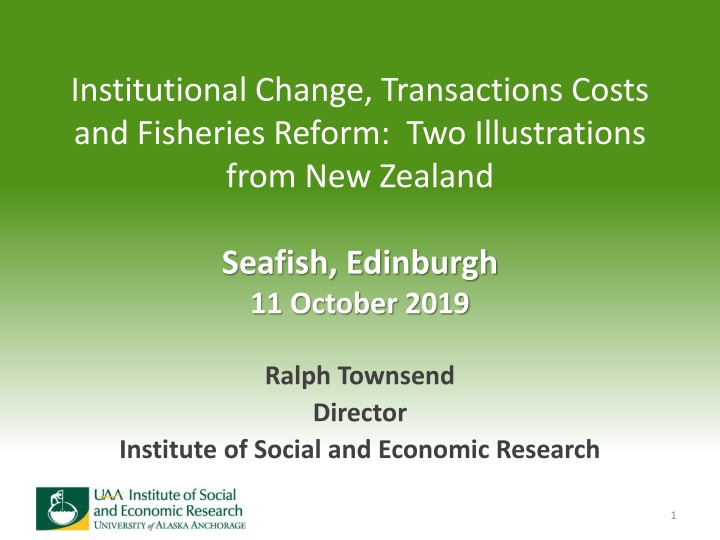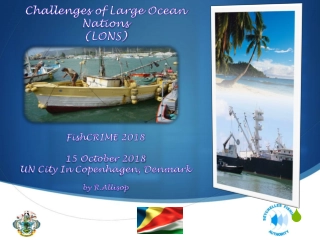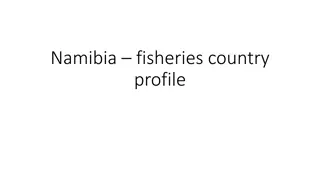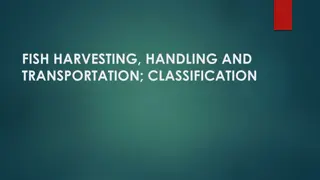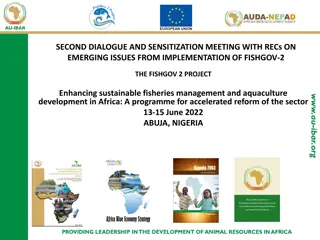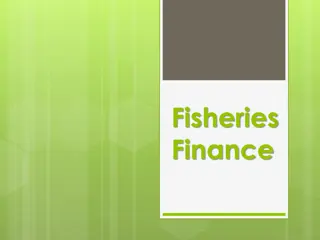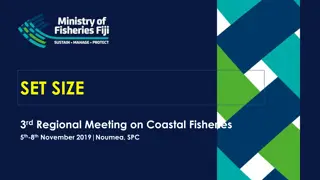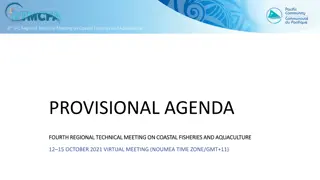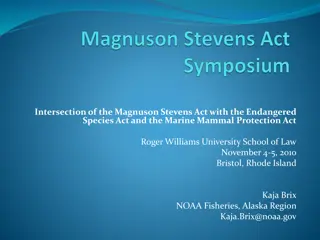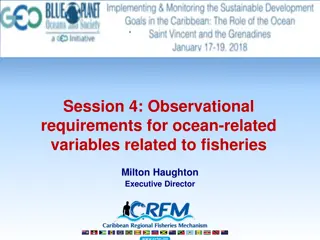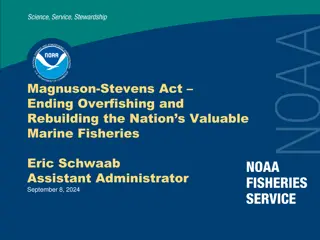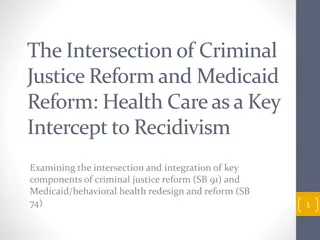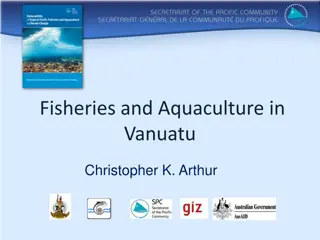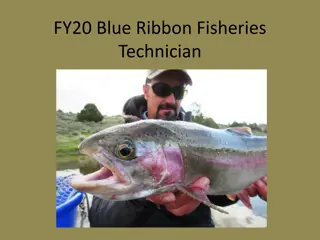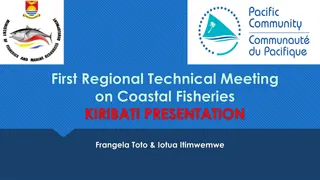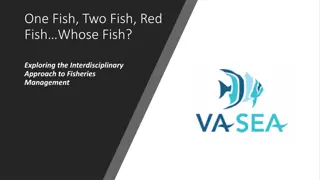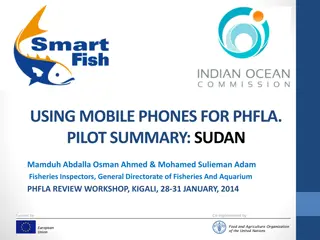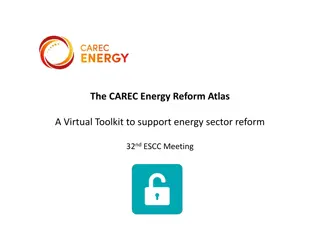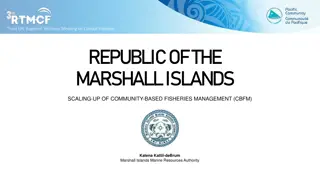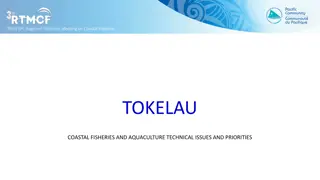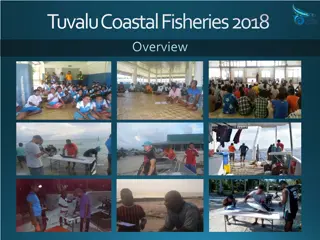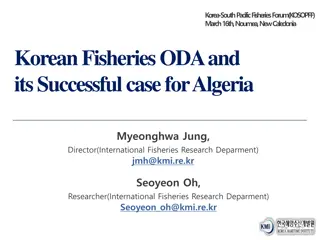Fisheries Reform Through Deemed Values: An Analysis
Illustrations from New Zealand's fisheries reform highlight the use of deemed values to address market inefficiencies and reduce transaction costs. Deemed values play a crucial role in balancing catch entitlements and landing fees, ultimately promoting market efficiency and streamlining regulatory enforcement.
Download Presentation

Please find below an Image/Link to download the presentation.
The content on the website is provided AS IS for your information and personal use only. It may not be sold, licensed, or shared on other websites without obtaining consent from the author.If you encounter any issues during the download, it is possible that the publisher has removed the file from their server.
You are allowed to download the files provided on this website for personal or commercial use, subject to the condition that they are used lawfully. All files are the property of their respective owners.
The content on the website is provided AS IS for your information and personal use only. It may not be sold, licensed, or shared on other websites without obtaining consent from the author.
E N D
Presentation Transcript
Institutional Change, Transactions Costs and Fisheries Reform: Two Illustrations from New Zealand Seafish, Edinburgh 11 October 2019 Ralph Townsend Director Institute of Social and Economic Research 1
First principles 1. Market failure pervasive in fisheries because of common pool problem. 2. But government failure is also pervasive. 3. Smart regulation (e.g., ITQs) seek to use economic incentives to reduce government failure. 2
2001: Quota/ACE split and DVs Quota: the permanent right, expressed as the % of the TACC Annual Catch Entitlement (ACE): For any year, the tonnage of catching rights generated by the ownership of quota. Deemed Values: A fee (per kilo) paid for landing fish in excess of ACE. Also explored self-governance.
Deemed values: Kiwi pragmatism Practical tool to allow ex post balancing. Allowed civil administration of fees
Administrative context If P (ACE) < DV < P (fish), then pretty straight- forward. If P (ACE) > P (fish), then enforcement matters.
But also: Increases market efficiency Reduces total number of transactions. Reduces transactions costs for very small overages. Reduces inefficiencies associated with thin markets.
Standard deemed values Base rate: P (ACE) < DV < P (fish) Standard ramping of differentials: 0-20% over: Base rate 20%-40% over: 120% of base rate 40%-60% over: 140% of base rate 60%-80% over: 160% of base rate 80%-100% over: 180% of base rate Over 100% over: 200% of base rate
Differential deemed values $5.00 $4.50 $4.00 $3.50 $3.00 $2.50 $2.00 $1.50 $1.00 $0.50 $0.00 0.00% 50.00% 100.00% 150.00% 200.00% 250.00% 300.00% 350.00% Series1
Summary Deemed values reduce transactions costs of balancing in multispecies ITQ fisheries for government and industry. Differential deemed values map out increasing marginal cost of catch.
Self-governance Self-governance: Regulatory framework tolerates/encourages industry to make/implement decisions that traditionally are government s. Rationale: Industry can achieve regulatory objectives at lower cost and/or increase economic value. 10
Transactions costs are key. Collective decision-making involves transactions costs. Value of people s time large part of costs. Transactions costs increase exponentially with the number of participants. Monitoring and enforcement are expensive. Benefits of collective action must exceed costs of self-governance. 11
Factors that help fisheries self- governance. A closed pool of participants. (Essential) More clearly defined rights (e.g., shares) Small numbers. Homogeneous self-interests. Non-unanimous decision-making structures (Essential for pools > about 20.) Predictable biologic systems. High % of self- governance is in shellfish. Applicability of spatial allocation tools. 12
Factors that help fisheries self- governance. Efficient enforcement mechanisms. A good lawyer with a fishing background. Learning from other successful cases. Cost recovery for monitoring and enforcement (creates opportunity for easy win. ) 13
Role of Government Philosophy Economic outcomes matter. Willingness to shift authority. Willingness to enforce decisions from self- governance. Defining vehicles for non-unanimous decision-making. Flexibility and incremental devolution. Tolerance for mistakes. 14
Two references Townsend, Shotton, and Uchida. 2008. Case Studies in Fisheries Self-governance. FAO Technical Paper 504. Townsend. 2010. Transactions Costs as an Obstacle to Fisheries Self-governance in New Zealand. Australian Journal of Agricultural and Resource Economics 54: 301-320. 15
Institutional Change, Transactions Costs and Fisheries Reform: Two Illustrations from New Zealand Seafish, Edinburgh 11 October 2019 Ralph Townsend Director Institute of Social and Economic Research 16
